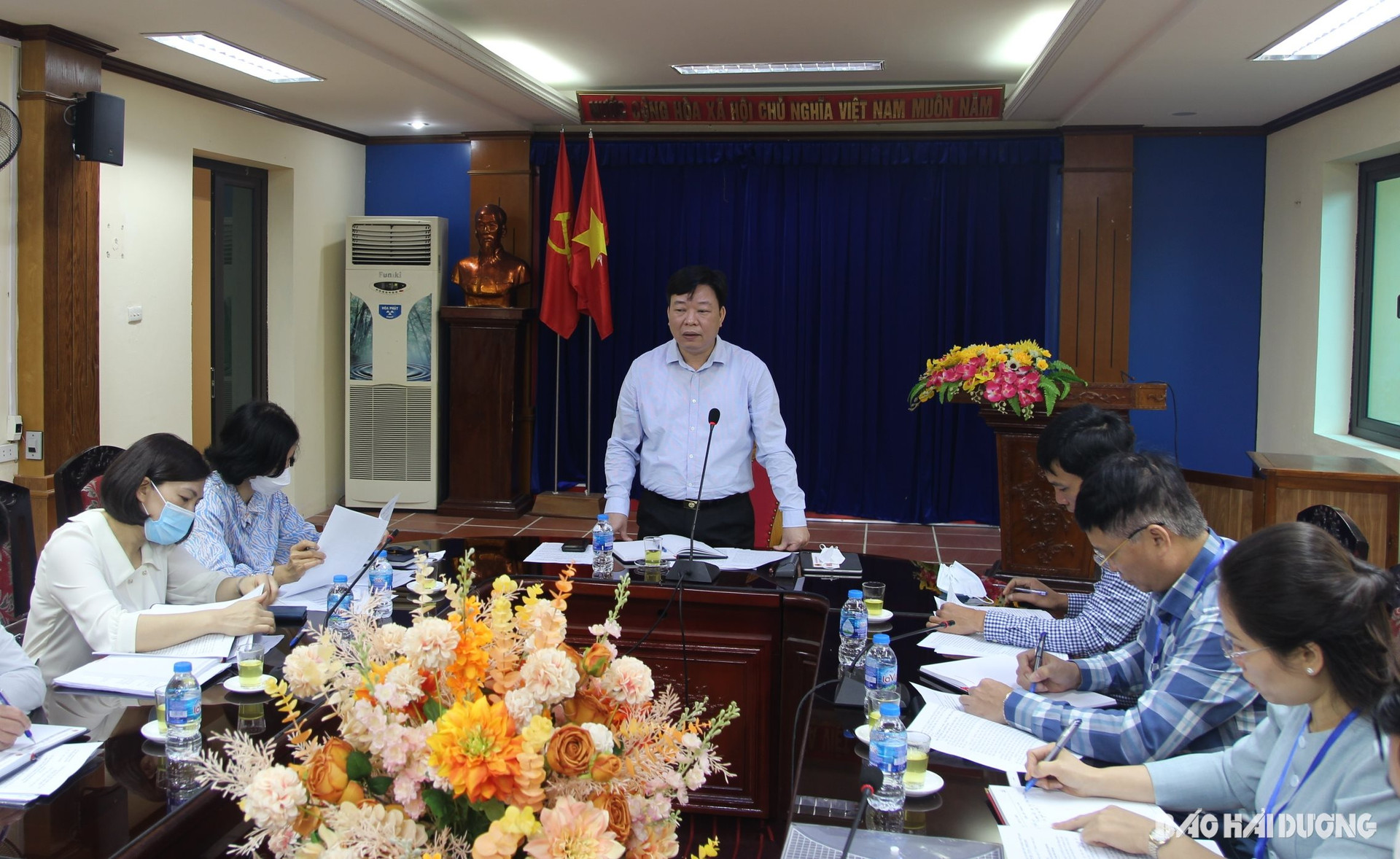The Hai Duong Department of Home Affairs is consulting on a draft document to issue a Resolution of the Provincial People's Council on regulations on titles, allowance levels, support levels and funding for part-time workers, political and social organizations at the commune, village and residential area levels in the province.

According to the draft, regarding the titles of non-professional workers at the commune level, each commune and town has 18 titles, each ward has 20 titles. The monthly allowance paid to non-professional workers at the commune level who have not been trained includes support for compulsory social insurance and health insurance as prescribed.
Part-time workers at the commune level with a professional qualification of graduating from intermediate level or higher, in addition to receiving the allowance according to regulations, are also supported with a monthly allowance according to their training level: intermediate level is 0.21 times the basic salary; college level is 0.35 times the basic salary; university level is 0.69 times the basic salary.
Non-professional workers at the commune level who have not been trained must, within 5 years from the effective date of Decree No. 33/2023/ND-CP, meet the minimum standards as prescribed. If they have not met the minimum standards by the end of the period, they will be subject to retirement (if eligible) or a staff reduction policy as prescribed.
Titles of non-professional activists in villages and residential areas include: Party cell secretary; Village chief, residential area chief; Head of the Front work committee, village, residential area (encouraging holding concurrent positions).
The monthly allowance for Party cell secretaries, village chiefs, residential area chiefs, and front work committee heads in villages with less than 350 households and areas with less than 500 households are 1.6, 1.6, and 1.3 times the basic salary, respectively.
For villages with 350 households or more, and areas with 500 households or more, the support levels for Party cell secretaries, village chiefs, residential area chiefs, and heads of the Front work committees, villages, and residential areas are 2.1, 2.1, and 1.8 times the basic salary, respectively.
Regarding the specific budget allocation for socio-political organizations at the commune, village and residential area levels, it is as follows: For socio-political organizations at the commune level of type I, type II and type III, it is 15 million VND, 13.5 million VND and 12 million VND/organization/year, respectively.
The budget for allowances for branch heads and activities of socio-political organizations in villages and residential areas is as follows: Branches in villages with less than 350 households and areas with less than 500 households are 4.5 million VND/organization/year. Branches in villages with 350 households or more, residential areas with 500 households or more, villages with 350 households or more converted into residential areas due to the establishment of commune-level urban administrative units have an allowance of 6 million VND/organization/year.
Regarding the positions of people directly participating in activities in villages and residential areas, each village and residential area arranges 2 people to take on 3 positions: Deputy Head of Village and Residential Area; Police Officer (for villages), Head of Civil Protection Team.
The monthly support level for those directly participating in activities in villages and residential areas is specifically as follows: Deputy Head of village and residential area is entitled to a compensation level of 1 time the basic salary/person/month, the remaining positions are entitled to a compensation level of 0.5 times the basic salary/person/month.
The Department of Home Affairs also consulted on the draft plan for assigning the number of commune-level cadres, civil servants and non-professional workers at the commune level in the province in 2024. According to the draft, commune-level cadres and civil servants are calculated according to the classification of commune-level administrative units, for type I wards it is 23 people, type II wards it is 21 people and type III wards it is 19 people; for communes and towns of types I, II, III it is 22 people, 20 people and 18 people respectively. Calculating the increase according to population size and area, commune-level administrative units that increase by half of the prescribed level on population size will be increased by 1 civil servant; commune-level administrative units that increase by 100% of the prescribed level on natural area will be increased by 1 civil servant. For non-professional workers at the commune level, communes, wards and towns of types I, II, III will be 14 people, 12 people and 10 people respectively. On that basis, in 2024, the total number of commune-level cadres and civil servants proposed for assignment is 4,886 people. The total number of non-professional workers at the commune level proposed for assignment is 2,683 people.